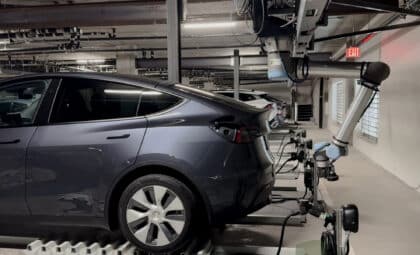
White collar jobs may not be as secure as they once were
General Motors recently announced its intention to cut approximately 14,000 jobs in an effort to pivot toward an automotive landscape that features an increasing amount of electrification and automation. However, only 6,000 of these jobs will involve “blue-collar” facility workers.
The remaining 8,000 will be “white-collar” salaried jobs, representing a growing risk for salaried workers in every business sector nationwide.
Transportation for Higher Education: The best cars for going back to college
In the past, when automakers eliminated members of their workforce, the cuts mainly affected hourly workers at plants and facilities. With emerging tech and the changing automotive landscape, the pendulum has swung the other way.
As GM sets out to add more electric vehicles and self-driving cars to its model lineup, it will need fewer engineers who specialize in combustion engines and more software engineers. These recent job cuts reflect that phenomenon.
“We’re talking about high-skilled people who have made a substantial investment in their education,” explains Marina Whitman, a retired professor of business and public policy at the University of Michigan and a former GM chief economist. “The transitions can be extremely painful for a subset of people.”
Choosing the Right Financial Transaction: Used vs CPO
Fortunately, these engineers are more adept at learning the new skills that GM is looking for than most factory workers would be, given their previous workplace experience. Yet, acquiring the education for these skills is both time-consuming and potentially expensive.
These job cuts could also have a negative effect on Detroit’s recent economic renaissance. While GM has stated that it will continue to hire in the Detroit area, it has recently expanded its EV and automation efforts to cities like San Francisco and Seattle, which already have an established pool of software engineers.
Detroit isn’t the only city at risk. Wichita, Kansas, recently saw its aircraft industry shrink as the need for a more tech-savvy workforce in the sector arose.
The workforce needs to be more tech-savvy than ever
Indeed, the automotive industry isn’t the only one where computer skills are becoming highly sought after. Workers ranging everywhere from lawyers to bankers are now facing a less stable employment status as even these jobs adopt automation and software skill requirements.
Of course, GM itself is taking a risk with this business plan. If electrification and automation efforts stall, then GM will find itself with fewer employees trained in traditional automobiles production.
Still, GM sees these developments as the future of the automotive industry. As progress marches forward, salaried workers now face the difficult task of adapting to these changes.
News Source: The Associated Press
The News Wheel is a digital auto magazine providing readers with a fresh perspective on the latest car news. We’re located in the heart of America (Dayton, Ohio) and our goal is to deliver an entertaining and informative perspective on what’s trending in the automotive world. See more articles from The News Wheel.












